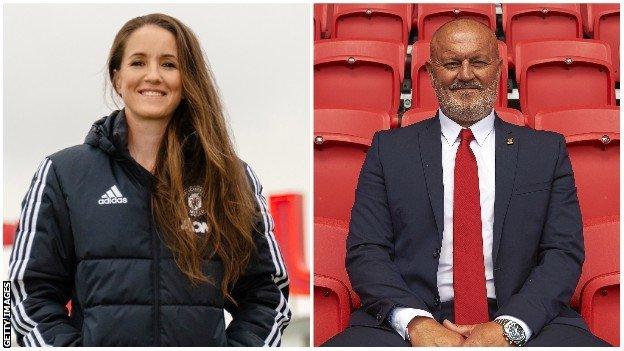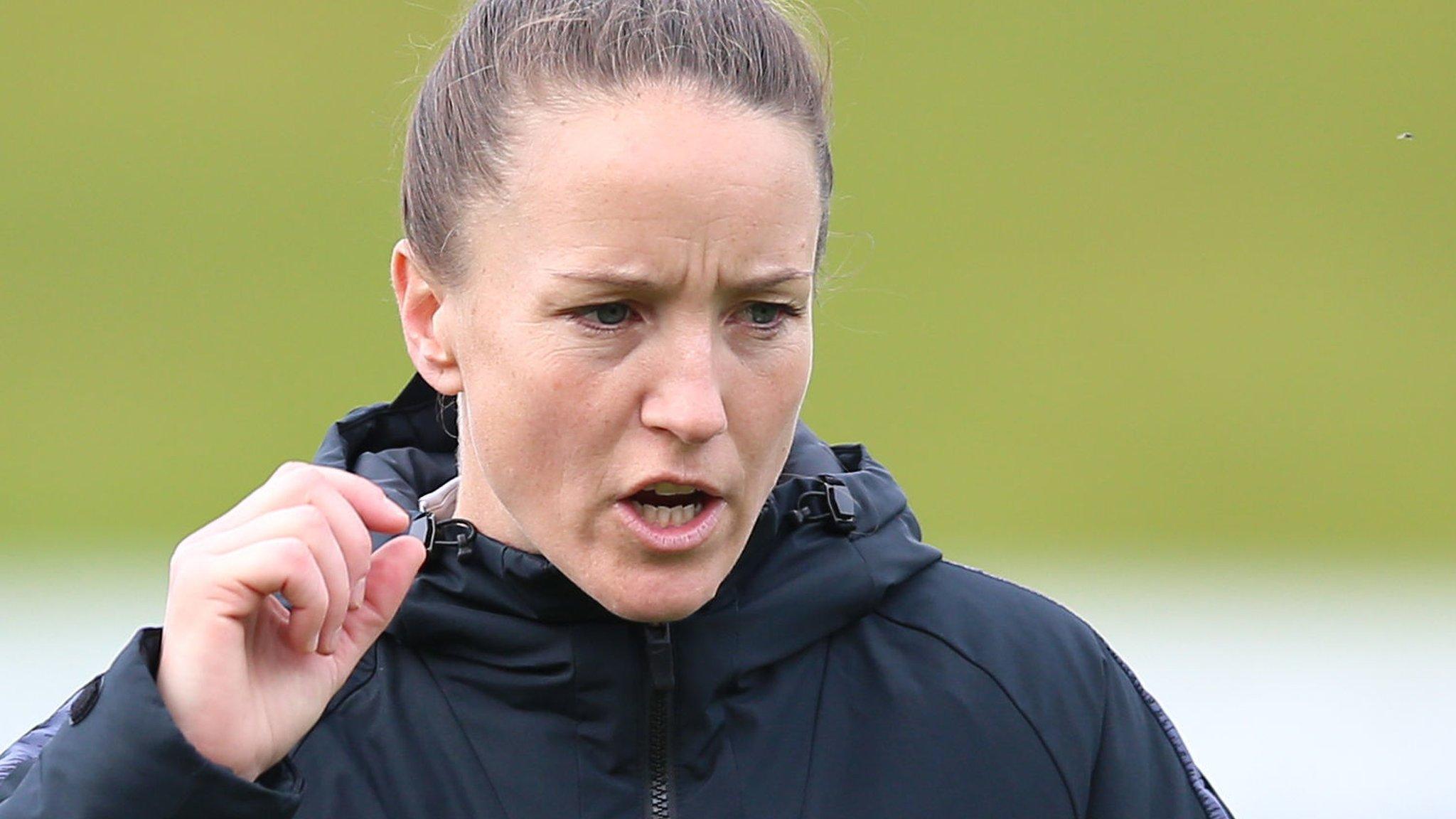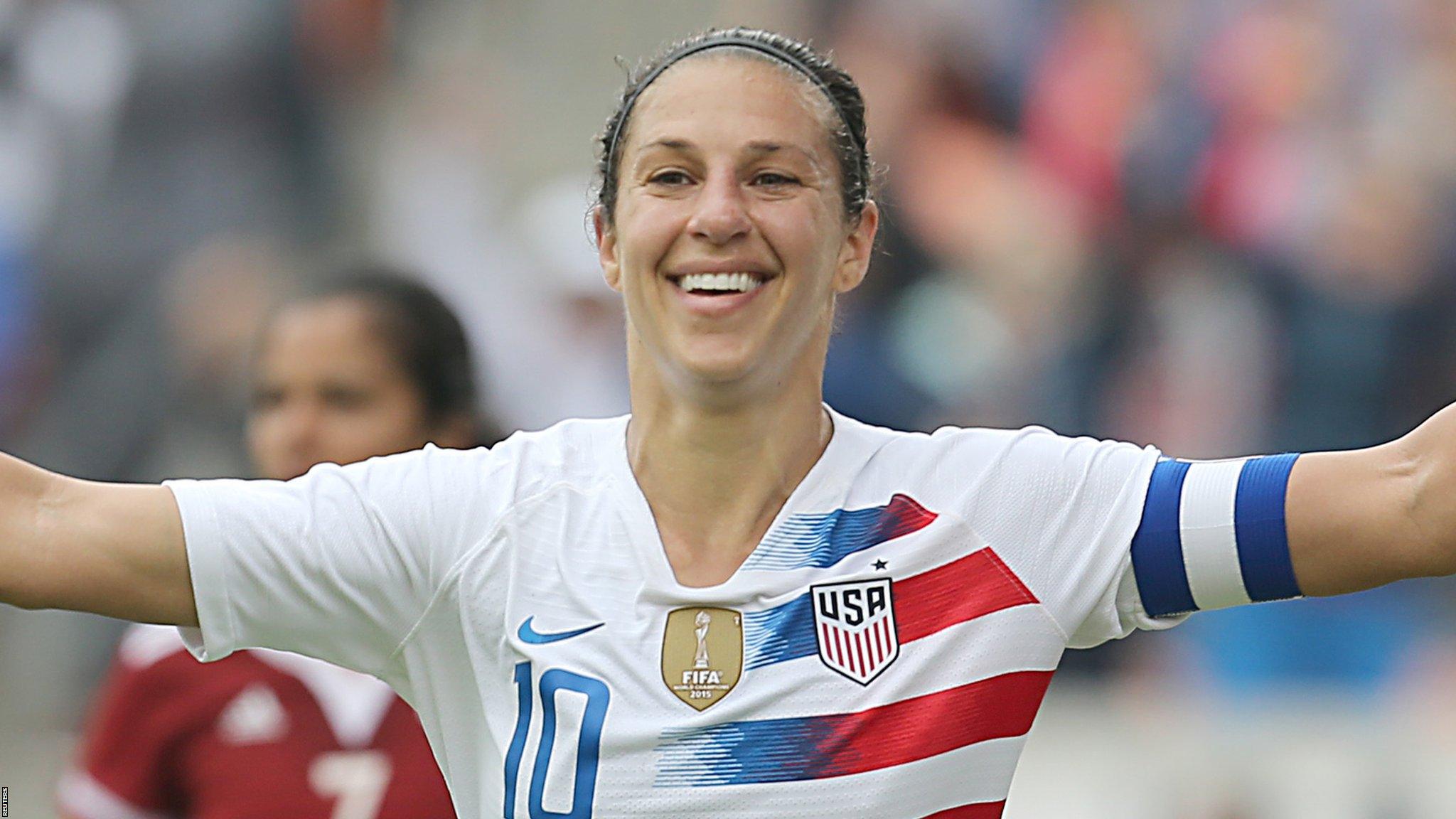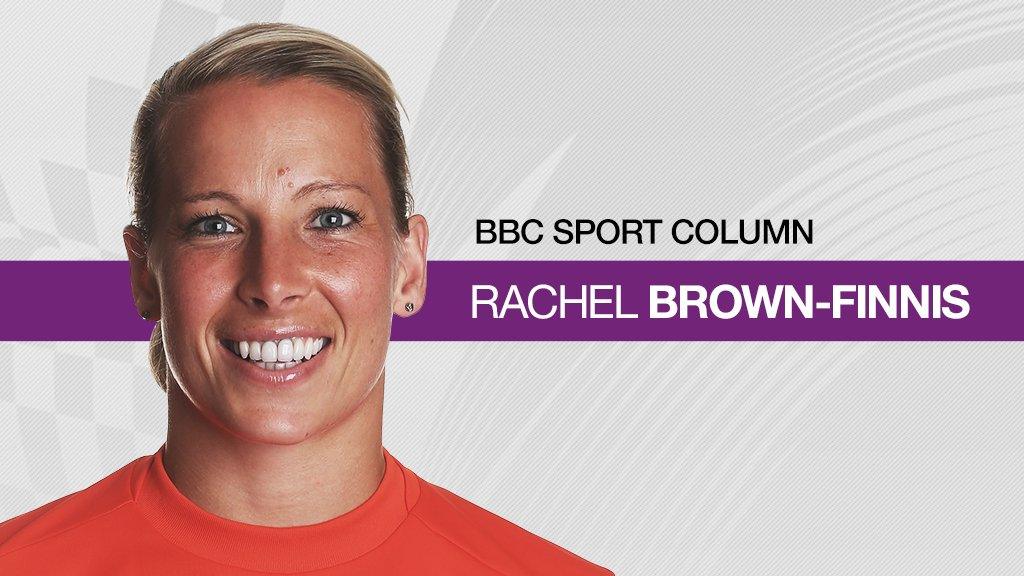Manchester United mark return to women’s football with a new Liverpool rivalry
- Published
- comments
Casey Stoney looks ahead to Manchester United Women's first professional game
If there was one thing that drove Sir Alex Ferguson to distraction, it was Manchester United's rivalry with other leading teams.
From trying to "knock Liverpool off their perch" to "noisy neighbours" Manchester City and a rivalry with Arsenal that "made the Premier League", Ferguson knew that staying ahead of his enemies would drive his team to greater heights.
Likewise, beating Manchester United provides inspiration for their opponents. And the same sort of rivalry can now flourish in the women's game after United decided to introduce a women's side for the first time in 13 years.
United will operate in the FA Women's Championship this season, a division below Liverpool, Manchester City and Arsenal, but they will get their first chance to test themselves against the Merseysiders on Sunday in the Continental Cup (14:00 BST kick-off).
Women's football is "desperate" to have a Manchester United side, says new United head coach Casey Stoney, who adds that the game "needs us to do well".
The former England captain also wants to go "one better" than City, who, alongside Chelsea, have been the dominant force in the domestic game in recent seasons.
So could we start to see the type of rivalry that provides extra edge and profile to the women's game?
Where have United been?
Until United announced in March that they were reforming their women's team, they and Real Madrid were the only two of the world's top 10 richest teams not to have one.
United disbanded their senior women's team in February 2005, months before the Glazer family took charge, as it was deemed not to be part of the club's "core business". Instead, they chose to concentrate on developing youngsters, which by most accounts they have done successfully.
But that left promising young female players needing to leave for another team if they wanted to pursue a professional career. England midfielder Izzy Christiansen was one such case, and the England midfielder, now at Lyon, took the option of joining neighbours Manchester City.
So why return now?
After the game turned semi-professional in 2011, and as crowds grew, it appears United were waiting for the right moment to return. The success of Manchester City's women's team may have accelerated the process.
Stoney says: "I understand why Manchester United didn't come in earlier, because they didn't feel they were in a place to do it properly, and this club doesn't do anything unless it does it properly."
In launching a fully professional women's side, the club has continued its tradition of giving youth its chance. Stoney will have seven former centre of excellence players in her squad.
With two England internationals in their ranks - former Liverpool goalkeeper Siobhan Chamberlain and left-back Alex Greenwood, who is captain - they can call on experience, too. More importantly, they will have the full backing of one of the most powerful clubs in the world.
Stoney, who knows women's football inside out, says: "I can honestly say I've never been at a club where the level of detail and standards are so high. They want the team to be successful and they want the players to have the best opportunity to be able to develop.
"The club gave me free rein to go and pick the players that I wanted. The only problem was I had about four weeks to do it.
"The club have taken the pressure off a little bit by saying there are no expectations in year one. I know the fans won't look at it that way. It's a massive club steeped in tradition and a history of winning - and we don't want to be any different."
Casey Stoney: Man Utd can change face of women's football
Will Liverpool want to prove a point too?
Liverpool were one of the first clubs to fully back their women's side and won successive Women's Super League titles in 2013 and 2014, but since then things have unravelled.
When Chamberlain quit Liverpool in May - one of seven Reds to join United this summer - she questioned the club's commitment to the women's operation, saying: "I want to know that I am part of a project that is doing the most it can to develop women's football."
Last season they finished sixth in a 10-team division, with manager Scott Rogers and a host of players, including Greenwood, leaving the club. Former Leeds and Rotherham boss Neil Redfearn, who moved into the women's game with Doncaster Rovers Belles, has come in to pick up the pieces.
Indeed, Redfearn, who won the second-tier title with Doncaster last season after becoming the first Football League manager to move over to the WSL, has relished rebuilding the playing squad and has praised the "one-club mentality" at Anfield.
"This season is about putting our name back on the map," he said.
Redfearn denies that Sunday's tie will be a grudge match, given the number of players who have swapped clubs.
"Players coming back to face a former team is nothing new but it adds a little bit of interest for people looking in," he told BBC Sport.
"The fact it's the first competitive game of the season between two big clubs, that's enough spice in itself. The rivalry between Liverpool and Manchester United is something to relish."

Manchester United boss Stoney will be facing Neil Redfearn, who won the WSL2 title with Doncaster Rovers Belles last season before taking over at Liverpool
Where will the fans come from?
The Football Association will hope United's introduction helps attract more fans to the game, at a time when a boost is needed.
Last season, the WSL suffered from a dip in attendances, which coincided with a move back to a winter season, and the cause is not helped by playing many games at non-traditional venues. Liverpool's home tie on Sunday takes place at Tranmere's Prenton Park, which is not ideal but closer than their home for the past five seasons on an artificial surface in Widnes.
United may suffer in this regard too. Like the club's youth teams, they will play home games at the Leigh Sports Village Stadium, a 12,000-seat ground near Wigan.
After a 13-year absence, it is also difficult to know where their fans will come from and how popular the team will be.
However, news of their re-emergence has been greeted positively, and they may welcome a boost from United's existing fan-base, given that Jose Mourinho's side travel to Brighton on Sunday, their longest road trip of the season.
Further encouragement may come from their rivals Manchester City, who relaunched their team in a similar fashion in 2014, and in 2016 became the first WSL team to average over 2,000 fans for home games.
Last season City had the second-best average attendance in the league behind Chelsea. However, they are helped by playing at the club's purpose built academy pitch right next to Etihad Stadium.
James Lloyd, 18, is one of many United fans who has welcomed the reformation of the women's team and will be present at the game on Sunday. He has a season ticket at Old Trafford and has already bought one to watch Stoney's side, costing £39.
"Having a women's team will open the door to new fans," he said. "Going to watch them will be as affordable as the men's team should be and I want to follow United everywhere, whether it's the men or women."
- Published10 July 2018

- Published29 May 2018

- Published21 June 2017
